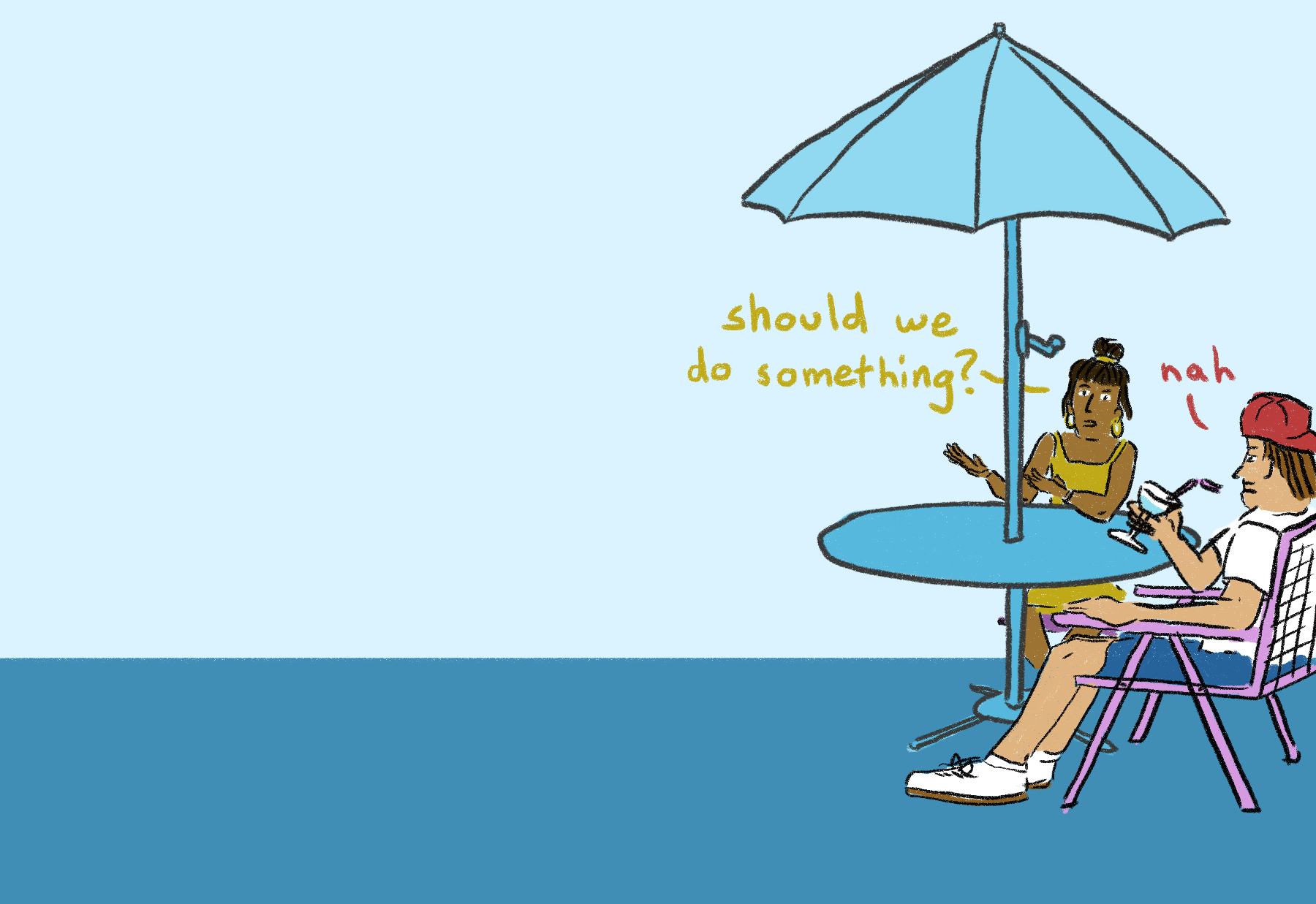Being a bystander is contradictory to our core values, and we shouldn’t stand on the sidelines
On March 20, a 15-year-old girl was reportedly raped by a group of five or six males in Chicago, according to Global News. During the assault, a member of the group turned on their Facebook Live application and filmed the entire incident, allowing the user’s friends to watch. About 40 people clicked on the live video, yet not one reported the incident to police. Authorities only learned of the rape on Monday afternoon after the girl’s mother approached the head of the police department. According to Global News, Chicago police said one of the assaulters, a 14-year-old boy, was arrested and the assault is still being investigated.
Unfortunately, this horrific incident shouldn’t come as a surprise. According to the Rape, Abuse and Incest National Network (RAINN), about 293,000 people over the age of 12 are victims of sexual violence in the United States every year.
According to Statistics Canada, there were almost 21,500 police-reported cases of sexual assault in Canada in 2015. In addition, Concordia’s Sexual Assault Resource Centre (SARC) statistics show that 82 per cent of sexual violence cases in Canada are perpetrated by someone the survivor knows. Also, one in three women, and one in six men, will experience sexual violence at some point in their lifetime.
With statistics like this, it’s understandable for everyone’s blood to boil. Realistically speaking, however, people generally have the habit of not getting involved in situations they’re not directly a part of for a number of reasons. They might fear repercussions, or maybe they think someone else will do something about it. A huge consequence of being a bystander is missing the chance to help someone helpless or vulnerable.
Out of the 40 viewers who watched the Chicago rape video, not one person took it upon themselves to intervene, according to CBC News. This act is horrendous—it is only rational to have expected at least one of those viewers to pick up the phone and call the authorities.
The bystanders’ silence is a total contradiction to what we are taught as children: to act in alarming situations. In elementary school, most of us are taught about bullying and how much power a bystander can have in preventing it. In ethics class, we are taught about racism and discrimination, and how, if someone is being attacked because of the colour of their skin or religion, a stranger can prevent an argument from escalating to something more violent. As we become more perceptive when we get older, the news constantly mentions rape stories and, again, how bystanders can prevent cases of rape and assault if they see a victim being harassed.
Bystanders have a hidden power that victims don’t—they are not vulnerable to acting or speaking out. But in this case, when a 15-year-old girl was raped, 40 bystanders sat back, watched, then continued surfing the web like nothing happened. Their silence enabled the assailants to rape her and for her to suffer the traumatic experience. If someone had reported it, authorities could have been contacted and possibly arrested the assaulters. The question now is, should the bystanders be held criminally accountable for the incident?
No, they shouldn’t. Criminally speaking, they were not the ones who performed the act, nor were they aware that it was going to happen. However, what they should be held accountable for is not acting immediately and for allowing the assault to continue. Hence, this makes them morally accountable.
A bystander’s lack of action can cause as much pain as an attacker’s action. Their silence is an invisible aggression indicating whether someone is worth helping or not. The situation was horrific to begin with, and could have ended even worse—she could have lost her life.
The lesson here is to try to make a difference in how we care for others. We are not alone in the world, and a life is always worth standing up for. Don’t allow yourself to simply stand on the sidelines and let something horrible happen—don’t simply be a bystander. Instead, be a “by-doer.”





All is not well where assisted suicide is legal. The foundation of assisted suicide movement is crumbling under the weight of non transparent pitfalls. There is documented abuse see Thomas Middleton Fed case where he was killed via the OR policy for his assets. A public policy failure.
I was my wife’s 24/7 caregiver during her last 18 months of declining autonomy
Pitfalls in assisted suicide laws need attention. We already have the right to refuse treatment. Many who believe in the concept under the choice banner have second-thoughts org when they read the language of the actual bill and realize our choice is Ignored and certainly not assured.
This is not about people who are dying anyway.
Amending Colorado’s Prop 106 is sorely needed (and OR,WA,CA). The initiative a monopoly and profit center was bought for $8,000,000 of deception. Even as they proclaimed that the poison must be self administered they did not provide for an ordinary witness. The difference is that without a witness it allows forced euthanasia but with a witness they would up hold individual choice.
Amendments would include requiring a witness to the self administration, restore the illegality of falsifying the death certificate require the posting of the poison applied in the medical record for the sake of good stewardship for future studies, register organ/tissue trafficking, reveal commissions and memorials paid to the corporate facilitators and keep all records for transparent public safety policy.
These Oregon model bills do not assure our choice and ignore our choice by empowering predatory corporations over us.
Bradley Williams
President
MTaas org